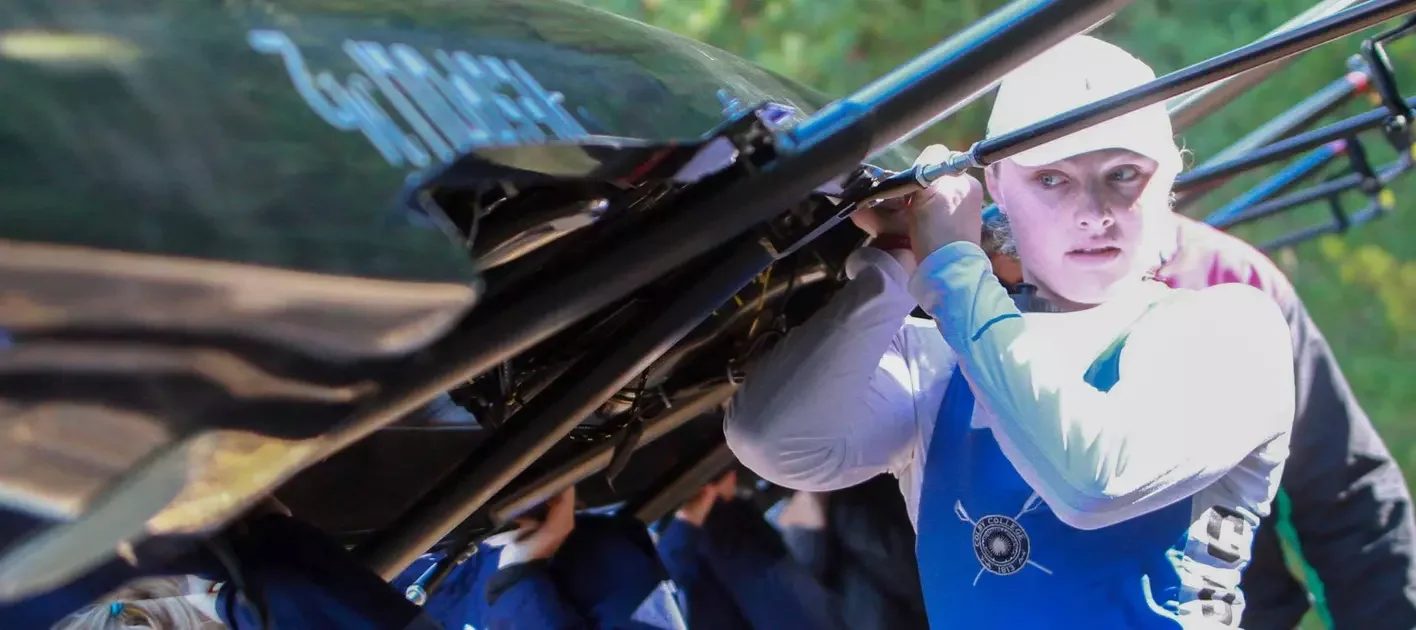D3 Walk-on Becomes 2x All-American
Sophie Suechting is a former D3 student-athlete (Colby College) who is currently the Head of Partner Experience at WinWon.
In this episode of the Student-Athlete Sessions, we covered a D3 sport for the first time: Crew.
Our guest, Sophie Suechting, has a very unique story and not one that you would expect to end in multiple All-American honors.
When she arrived at Colby College for her freshman year, she was not planning to play sports at all. Despite being a dual-sport high school athlete, she had decided against doing any kind of college sports recruiting and instead just wanted to be a student. However, she was recruited to row Crew on day 1 of college.
In this episode, Sophie shares how she improved en route to becoming a 2x All-American, gives her advice to future D3 student-athletes, talks about why she decided to coach Crew at her alma mater after graduating from school, working at a sports tech startup like WinWon, and much more.
Listen to Sophie’s Student-Athlete Sessions Interview:
To accompany the interview, we also had Sophie answer a few questions to provide context for listeners. Here responses to our questions about her D3 sports experience are included below in full. We hope you enjoy!
Sophie Suechting - Colby College Crew All-American
How would you describe Crew to someone who is unfamiliar with the sport?
Sophie: “Crew is in my mind the ultimate team sport. There are no individual standouts on the water as every stroke has to move in perfect unison for the boat to go fast. It's all about trust, rhythm, and shared effort towards a goal. Many people are not familiar with rowing which is funny though because it is often the most referenced teamwork metaphor in the corporate world with phrases like "we're all in the same boat."
For anyone wanting to understand this more, I always recommend reading the book The Boys in the Boat by Daniel James Brown (or watching the movie version that came out last year directed by George Clooney). It's the story of the University of Washington crew winning gold at the 1936 Berlin Olympics.”
Do all D3 schools compete in Crew or just a few?
Sophie: “Only a portion of D3 schools have crew programs. Rowing requires access to a body of water and significant investment in equipment like boats, oars, ergs, and coaching launches, which can limit where the sport exists.
Historically, many top D3 programs have been in the Northeast, but strong teams now span the West Coast and other parts of the country as well.”
Are any schools D1 for Crew that normally compete at the D3 level?
Sophie: “Not that I am aware of. In the U.S., women’s rowing is an NCAA championship sport, but men’s rowing is not. Men's rowing is governed by the IRA, which hosts its own national championship. Many schools field men’s varsity crew teams outside the NCAA structure, and the IRA only recently introduced a D3 championship category. I’m proud to say Colby medaled in the 2V event last year!
Women’s D1 NCAA rowing is a major scholarship sport, with large roster sizes and meaningful funding opportunities. Because of that, it has been an important Title IX equalizer for many universities, especially those that also support large football programs.”
Sophie during her college career (Image via Colby College)
What is your favorite memory from your D3 college athletics career at Colby?
Sophie: “It’s impossible to pick just one moment! My favorite memories are all about the people. Winter training, early mornings, car rides to the boathouse, and the daily rhythm of doing hard things together cemented friendships that have lasted a lifetime.
Beyond that, I simply miss the serenity of being on the water. I always loved pushing off the dock and knowing that for a little while, the only thing that mattered was the boat, the rhythm, and the teammates beside you.”
What do you advise current high schoolers to do if they want to follow in your footsteps and row in college?
Sophie: “Start by reaching out to coaches and having real conversations—most are eager to talk to prospective athletes.
Go into those conversations knowing what you want in a program and what matters most to you, because recruitment is just as much you evaluating them as it is them evaluating you.
Once you find programs that excite you, stay in touch—share race results, erg scores, or milestones—make it easy for coaches to cheer you on and remember you, and the rest will fall into place.”



